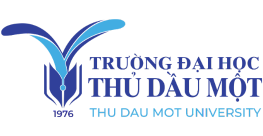Acculturative difficulties and coping strategies among Vietnamese immigrants a case study of two high-socio status immigrant families in the U.S.
Abstract
Vietnamese immigrants in the United States encounter a variety of acculturation issues that affect them as individuals, families, and as members of their communities. It is evidenced in the literature that low-socio status immigrants suffered from those acculturation challenges. However, there is scant research on how acculturation affects high-socio status immigrants in general and Vietnamese American immigrants in particular. To better understand how high-educated Vietnamese families coped with acculturation in the United States, this research used semi-structured interviews to examine the acculturation issues they encountered and the techniques they utilized to overcome those issues. Four well-educated participants were interviewed one-on-one for 20-30 minutes each by Google Meet in Vietnamese whenever they were available. The interviews were transcribed using unfocused transcription, and the data was analyzed using grounded theory technique. Results showed that high-educated Vietnamese immigrants in the United States face three major acculturation challenges: orientation, the necessity of better economic and self-esteem needs. However, women seemed to be under more acculturative stress owing to their lower levels of English proficiency and work satisfaction, according to the findings. In terms of coping methods, the husbands use integration acculturation tactics to deal with their issues. Separation methods were adopted by the women at various periods in their life, despite the fact that they are eager to become fully integrated members of American culture. They are unable to do so due to a lack of urgency and lack of access to cultural integration.
Keywords
Full text
View PDFPublication Information
Publisher
Thu Dau Mot University, Viet Nam
Honorary Editor-in-Chief and Chairman of the Editorial Board

Assoc. Prof. Nguyen Van Hiep
Deputy Editor-in-Chief

PhD. Trần Hạnh Minh Phương
Thu Dau Mot University
Thu Dau Mot University
Editorial Board

Prof. Tran Van Doan
Fujen University, Taiwan
Fujen University, Taiwan

Prof. Zafar Uddin Ahmed
Vietnam National University Ho Chi Minh City
Vietnam National University Ho Chi Minh City

Prof.Dr. Phillip G.Cerny
The University of Manchester, United Kingdom
The University of Manchester, United Kingdom

Prof. Ngo Van Le
University of Social Sciences and Humanities (VNU-HCM)
University of Social Sciences and Humanities (VNU-HCM)

Prof. Bui The Cuong
Southern Institute of Social Sciences
Southern Institute of Social Sciences

Prof. Le Quang Tri
Can Tho University
Can Tho University

Assoc. Prof. Nguyen Van Duc
Animal Husbandry Association of Vietnam
Animal Husbandry Association of Vietnam

Assoc. Prof. Ted Yuchung Liu
National Pingtung University, Taiwan
National Pingtung University, Taiwan

PhD. Anita Doraisami
Economics Monash University, Australia
Economics Monash University, Australia

Prof. Dr. Andrew Seddon
Asia Pacific University of Technology & innovation (APU)
Asia Pacific University of Technology & innovation (APU)

Assoc. Prof. Le Tuan Anh
Thu Dau Mot University
Thu Dau Mot University

Prof. Abtar Darshan Singh
Asia Pacific University, Malaysia
Asia Pacific University, Malaysia

Prof.Dr. Ron W.Edwards
The University of Melbourne, Australia
The University of Melbourne, Australia

Assoc. Prof. Hoang Xuan Nien
Thu Dau Mot University
Thu Dau Mot University

PhD. Nguyen Duc Nghia
Vietnam National University Ho Chi Minh City
Vietnam National University Ho Chi Minh City

PhD. Bao Dat
Monash University (Australia)
Monash University (Australia)

PhD. Raqib Chowdhury
Monash University (Australia)
Monash University (Australia)

PhD. Nguyen Hoang Tuan
Thu Dau Mot University
Thu Dau Mot University

PhD. Nguyen Thi Lien Thuong
Thu Dau Mot University
Thu Dau Mot University
Assistant

Nguyen Thi Man
Thu Dau Mot University
Thu Dau Mot University

